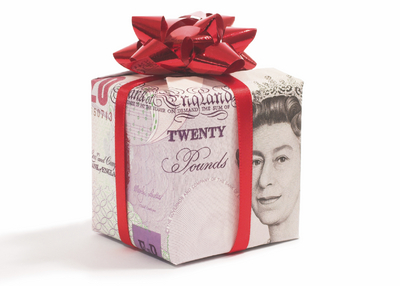 Getting into debt and struggling with your finances can often feel like falling down a hole that you have no way of climbing out from. Whether it’s credit card debt, student debt, or debt because you’ve not been as lucky with work as you’d hoped, such financial issues can wreak havoc on your mental and physical wellbeing, as well as relationships with friends and family.
Getting into debt and struggling with your finances can often feel like falling down a hole that you have no way of climbing out from. Whether it’s credit card debt, student debt, or debt because you’ve not been as lucky with work as you’d hoped, such financial issues can wreak havoc on your mental and physical wellbeing, as well as relationships with friends and family.
It’s tempting to try and solve your debt all at once, but this creates a vicious cycle where you throw yourself straight back into your predicament. Rather than do this, consider taking baby steps to pay off your debt slower, yes, but also more effectively.
If you are struggling with tricky financial problems, here are some steps you can take to transform your fortunes and feel better about your money so you can finally feel comfortable and confident when looking at your bank account.
 Cut Back on the Luxuries
Cut Back on the Luxuries
The first thing people will tell you when trying to eliminate debt is to get rid of your luxuries, and that’s precisely what you’re going to hear right now. Luxuries are just that: a luxury, and even if you are convinced you need them, you’ll soon find that is not the case.
Whether it’s fruity, exotic craft beers, an expensive haircut, or the latest Xbox game, you need to resist spending so much on it. These things will still be there once your debt is paid off, so give yourself time and show restraint.
Likely, you don’t even realize how much you are spending on luxuries, so give yourself a month and take a look at your bank account. You’ll soon see that the money that typically goes on fancy and expensive items can be much better used for your debt.
Create a Proper Budget
Once you’ve cut out the luxuries and you know how much money you do (or don’t) have to spend each month, you can start working out a proper budget, and this is one that you must stick to religiously.
Budgets are there for a reason, and it helps you understand exactly where the money is going. Start by working out how much money you earn, and how much you spend on essentials (such as rent, mortgage, food, gas, etc.) each month, and then decide how much you can realistically put towards your debt.
Remember that you may still need to have a little saved for emergencies like car troubles or medical issues, so don’t use all of your leftover money for bills. But if you can put as much away and still be confident and comfortable, this is a bonus.
 Ask for Support
Ask for Support
It’s difficult to ask for support when in debt, but sometimes this is one of the easiest ways for you to overcome your problems. You can speak with your bank to renegotiate interest rates that are more manageable for your current situation, or you can even opt to transfer to debt to another account with better rates, anyway.
Sometimes, you won’t owe a debt to the bank but rather a person. This could be a friend, spouse, or relative. It isn’t easy to understand which scenario is better. On the one hand, the bank doesn’t care about you, only your debt, but there are interest rates. Conversely, there’s the personal connection with friends or family, even if you won’t need to pay interest, at least not most of the time.
That being said, friends and family can help you get out of debt or at least make it more manageable for you. It might be that the debt merely transfers to them, but with a decent support network, this shouldn’t be too stressful for too long.
Use Your ‘Found Money’
What exactly is ‘found money’? Well, we all experience it throughout the year in the forms of a sudden and unexpected inheritance, substantial tax rebates, or even seasonal bonuses from work. The thing that trips people up is that they consider this money to be a treat rather than something that can help them.
This is especially true when the party is in debt. They may get a massive bonus for a job well done, but they will spend it on a holiday they convince themselves they deserve rather than paying off the mountain of credit card debt lurking in the kitchen drawer.
Rather than doing this and succumbing to the allure of treating yourself, this found money can quickly go towards debt. It might feel a shame to spend it all in one place, but the psychological boost you’ll get from taking such a huge chunk out of what you owe will be more than worth it. It makes debt more manageable and also increases your happiness and wellbeing, which is just as important.
Go Back to School
Yes, it sounds counterproductive, but learning new skills can make you more employable and therefore improve job prospects. You can consider applying for a business course at institutions such as the University of Alabama Birmingham, or you can chase your dream of becoming a doctor at other schools.
However, going back to a paid school isn’t the only option. Community environments or even online universities courses, which are typically free, will help you boost your skillset and make you more employable. If you can work this around your current job without needing to resign, you will put yourself in a much more comfortable position to pay off your debt.
Education can be a long and stressful road, especially with other obligations hanging over your head. But with enough dedication and, again, support from those around you, it could also be the trigger that helps you get to the next stage in life and set you up perfectly to pay off debt and live with more secure and stable finances.
Finances Fixed
Being in debt is never pleasant, and it’s also not something you can solve overnight. Instead, you need discipline, flexibility, and a plan to help drag you out of the hole and back into good fortunes. Whether your debt is small, significant, or somewhere in between, we all struggle with owing money, but understanding how you can overcome this will make it much more comfortable to manage.
You must log in to post a comment.